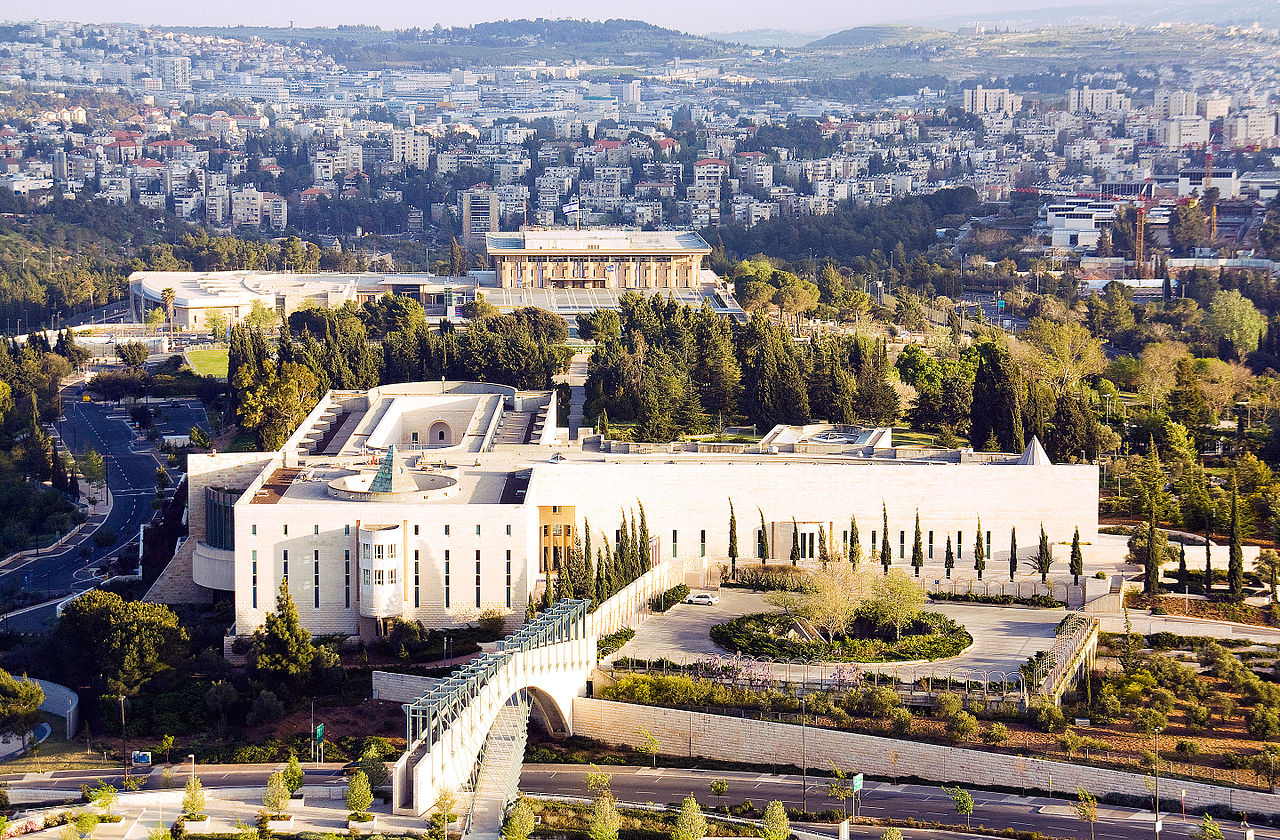By: Joshua Sills
I am fortunate to be spending this semester as a Foreign Law Clerk at the Supreme Court of Israel in Jerusalem through Washington University School of Law’s International Justice and Conflict Resolution Externship.
The Israeli Supreme Court is one of the busiest high courts in the world. In 2014, when the United States Supreme Court issued 74 opinions, the Israeli Supreme Court handed down decisions in 3,642 cases. Like the United States Supreme Court, the Israeli Supreme Court is a court of last resort for cases appealed up from the magistrate and district courts.
But unlike the United States Supreme Court, the Israeli Supreme Court is also a high court of justice – which means that any Israeli citizen or Arab inhabitant of the West Bank or Gaza Strip may directly petition the court to dispute the actions of a government official or agency. In the Elon Moreh Case, the Israeli Supreme Court considered a petition contesting the seizure of private land in the West Bank to build a settlement. The Court held that the seizure violated international law and required the settlers to return the land to its owners.
Israel is home to many different religious and cultural groups – Jews, Muslims, Christians, Druze and Baha’i. Following the Ottoman and British traditions, each of these groups enjoys some degree of legal autonomy and is allowed to enforce their personal status laws through their religious tribunals.
The Israeli Declaration of Independence provides that Israel will ensure complete equality of social and political rights and freedom of religion, conscience, language, education and culture for all – regardless of race, religion or gender. These guarantees emerge as positive legal rights through Israeli Common Law and are incorporated as guiding principles in Israel’s Basic Laws. The Israeli Supreme Court applies these guarantees equally to all people – citizens and non-citizens alike. In 2015, the court struck down Israel’s Anti-Infiltration Law because it provided for excessive detention of asylum seekers.
Israel is a nation where religion and state are not separate – the religious tribunals are part of its legal system – but it is also a democracy committed to the protection of human rights. The court is guided by a philosophy of balance, tolerance and respect when these dual identities push up against each other. In the Bar Ilan Street Case, the Supreme Court considered whether to close a street in observance of Shabbat even though it was a major thoroughfare to a hospital. The court reached a compromise and held that the street should remain open except during prayer hours when people were going to and coming from the Synagogue.
That Israel’s dual democratic and religious values are compatible with one another is the basic premise on which the Israeli Supreme Court operates. In times like these – when increased violence on all sides polarizes the political process – it is all the more important that there continue to be in Israel a voice for tolerance and peaceful coexistence among Israel’s many different peoples.


